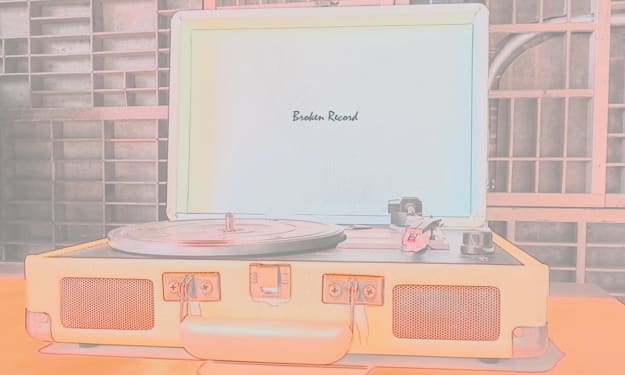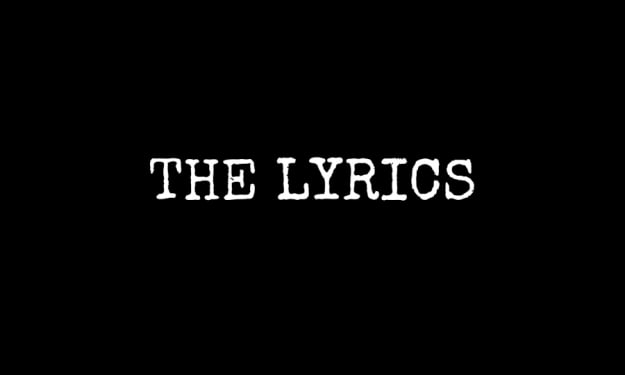
As you know, album sales for the mainstream music industry peaked in 1995-1999. The decline since has been epic. This has been largely blamed on piracy and a transition to digital media, but is this decline more about a lack of consumer confidence? The music industry has set the bar in heavy-handed marketing, corporate oligarchies, and cheaping out every time they get the chance. Record companies are a caricature of overreaching big business. The public's perception of this industry was always poor; it could be considered sleazy at best. Now it’s completely isolated, soulless and outrightly despised across the board. Millennials are consumed by music and media yet at the same time not buying it. What’s different? One of the biggest barriers may be the lack of real choices.
In the mid-1990's, it wouldn’t be rare to turn on your T.V. or radio and experience a variety of acts. Firstly there were main staples like rock, pop, rap and dance music. In 1997, noticeable but not massive examples could include (for no particular reason) Filter, All Saints, Snoop Dog, and Aqua. All very different aesthetics, messages, and personalities. They also hailed from different nations but gained global attention that year. Although they did garner mainstream media attention, they had separate markets and fan bases and were all featured on the hot 100 and prominently in their genres charts. The beauty was that none of these artists was the "top" or considered "massive,” but they were big enough to exist and co-existed in their time with massive artists like Madonna and U2 as well as smaller ones. There were tremendous varieties.
Fast forward to 2017, let's take a look at the rock charts and see who stands out…
We have Adele. She takes up air time and chart space on rock, rhythmic, pop, dance, top 40, and more. She is one of very few artists visible in this day and age. The establishment figures in the music industry estimate there is only room for approximately 13 acts a year to be “pushed”. Besides the lack of unique acts, the genres have become muddled and essentially cancelled. Rock is completely irrelevant, rap, pop and dance are all interchangeable and for the most part so are the artists.
Since the mid-2000's as the industry declined, those in power and those seeking power became more collusive and controlling, completely hypocritical, self-congratulating and elitist. The last one is a big one; their general disgust with anyone who is not part of their agenda is pretty obvious to anyone who knows an aspiring music hitting a glass ceiling. Once again the 1%, versus the rest. Resting on past success and ill-gotten riches, allowed to stay perched atop everyone else… without actually achieving and succeeding in any new ways.
The early 2000’s had a shred of false hope. Democratic systems like MySpace and YouTube at one point allowed for anarchistic content. These platforms did so until about 2012 (in my opinion). Recently, celebrities like PewDiePie have come forward claiming social media is being rigged against them. YouTube grew its user base as a discovery tool and is completely backtracking on what made them great. Many people didn’t notice but some of us watched as search bars had less and fewer options, suggested posts became more prevalent and non-mainstream content became invisible, all while fewer artists gained traction.
You may say “well there are still huge viral videos”. Yes but many of those even while the system was somewhat fair were actually produced and distributed by major corporations for easy money, produced cheap spread around and eaten up. I personally know a friend who worked on such a video in 2013. It was all hush-hush… but a bunch of people made instruments out of cans and everyone was hippyish and real (but in an “in-shape way”). It was produced cheaply using film students, starring undiscovered actors. All paid for and marketed by the company whose product filled those cans. To the untrained eye, it was this fun moment that just sort of caught on.
With discovery tools disarmed and the same old feeling extremely old, it is clear to see we lack even the illusion of choice. Isn’t diversifying product generally a favourable way to grow a business? And with digital media being so accessible could there be more than ever? I mean couldn’t a label just put the finishing touches on vast amounts of artists and benefit regardless of who came out on top?
It seems like the public is saying “no choice no sale” and the Media and Recording Industry are fine with that. But that isn’t the only problem. This ultra-unprofitable highly controlled market also lacks “connection”. Check out the next article “no connection, no sale”.






Comments
There are no comments for this story
Be the first to respond and start the conversation.